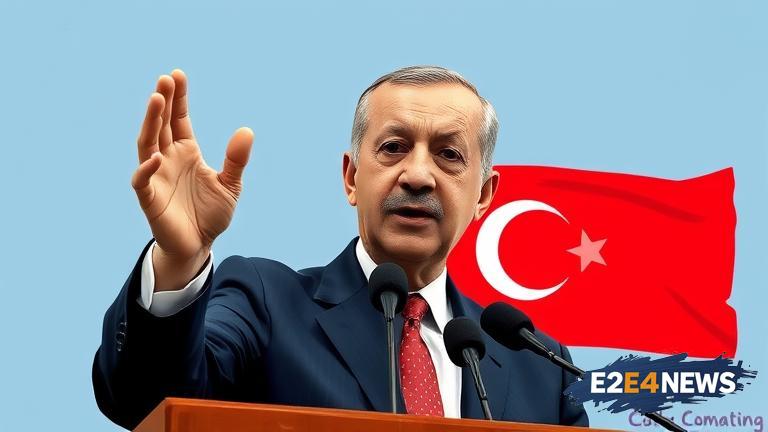The Cyprus dispute has been a contentious issue for decades, with the island nation divided between Greek and Turkish Cypriots. Recently, Turkish President Recep Tayyip Erdogan has weighed in on the matter, advocating for a two-state solution. This approach would involve the establishment of two separate states, one for Greek Cypriots and one for Turkish Cypriots. Erdogan’s proposal has been met with skepticism by some, who argue that it would perpetuate the division of the island rather than promoting reunification. The Cyprus dispute has its roots in the 1970s, when a military coup backed by Greece led to a Turkish invasion of the island. Since then, the island has been divided, with the internationally recognized Republic of Cyprus controlling the southern two-thirds of the island, and the Turkish Republic of Northern Cyprus (TRNC) governing the northern third. The TRNC is recognized only by Turkey, and the international community has called for a reunification of the island under a single, federal government. Despite numerous attempts at negotiation, a lasting solution has yet to be found. Erdogan’s two-state solution would likely involve the recognition of the TRNC as a sovereign state, which would be a major departure from the current international stance. The proposal has been met with opposition from the Greek Cypriot government, which argues that it would undermine the prospects for reunification. The United Nations has also expressed concerns about the proposal, citing the need for a comprehensive and inclusive solution that takes into account the rights and interests of all Cypriots. The European Union has also weighed in on the issue, calling for a reunified Cyprus that would be a member of the EU. The Cyprus dispute has significant implications for regional stability and security, and a lasting solution is seen as crucial for promoting peace and cooperation in the Eastern Mediterranean. The dispute has also been linked to issues such as energy exploration and maritime boundaries, with both Greek and Turkish Cypriots claiming rights to the island’s natural resources. As the situation continues to evolve, it remains to be seen whether Erdogan’s two-state solution will gain traction, or whether alternative approaches will be explored. The international community is likely to continue playing a key role in efforts to resolve the dispute, with the UN and EU working to facilitate negotiations and promote a lasting solution. Ultimately, a resolution to the Cyprus dispute will require a willingness to compromise and a commitment to finding a solution that works for all parties involved.
